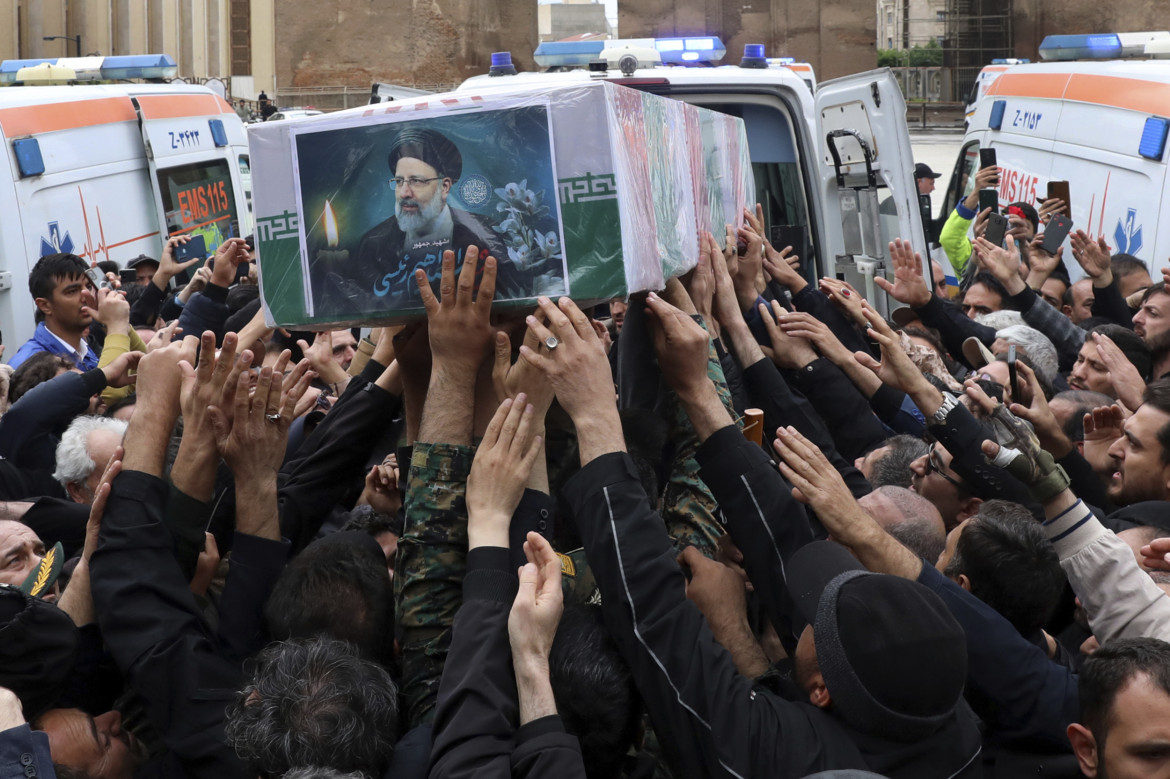Analysis
On the Lebanese front, Israel could wage a war outside its US ‘umbrella’
Israeli air strikes in Lebanon have become increasingly heavy-handed, killing 450 people, including dozens of civilians. In turn, Hezbollah has carried out military actions with increasingly powerful drones.

When the Israeli army announced a few days ago that it had a plan for an offensive in Lebanon against Hezbollah, in just a few hours, the price of power generators increased fourfold in the Haifa region, 30 kilometers from the Lebanese border.
Something similar had happened in the days of the clash between Israel and Iran following the bombing of Tehran’s embassy in Damascus. But this time, the Israelis believe Hezbollah could do more damage militarily than Tehran’s ayatollahs have been able to, busy as they are with an early presidential race as a result of the death of President Ebrahim Raissi in a mysterious helicopter crash. According to Israel, Hezbollah has an arsenal of 150,000 rockets, and would be able to hit the Jewish state with 5,000 munitions per day.
And it’s not just that: Tel Aviv fears that the military technology in the possession of the Lebanese Islamist movement might affect strategic power relations, so far based on Israel’s image as an unbeatable and untouchable superpower.
As in 2006, the war is on the verge of breaking out despite the U.S.’s attempts at mediation, entrusted to a controversial former Israeli officer, Amos Hochstein, who has made a career in the hallowed halls of American power. On Monday, in Washington, Hochstein, together with Secretary of State Blinken, met with Israeli Defense Minister Gallant, who is on a visit to the U.S.
Hochstein fits perfectly into the gallery of characters and organizations described by historian Ilan Pappe in his latest book, Lobbying for Zionism on both sides of the Atlantic, of fundamental importance but which we doubt will get much attention in Italy. Hochstein has also worked on and fleshed out the U.S.’s strategy in Europe and the Middle East. He was the one who pushed for the cancellation of South Stream, the Russia-Turkey-Italy pipeline that would have bypassed Ukraine. Furthermore, Biden enlisted his help to shut down North Stream 2, the pipeline between Russia and Germany.
The latter ended up being one of the causes of the conflict with Moscow. Now, Washington is sending in Hochstein once again, this time in the Middle East– where he brokered the 2022 agreement between Lebanon and Israel on maritime borders – to avoid another war between Hezbollah and the Israelis, in an explosive context due to the ongoing massacre in Gaza, where Prime Minister Netanyahu is not seeking peace, but an impossible “total” victory. As a mediator, Hochstein cuts an odd figure, showcasing the insuperable contradictions of American foreign policy, poised between ambiguously-formulated diplomacy and destabilizing moves with a devastating scope, shifting back and forth between allegiance to Washington’s primary interests, those of the Jewish state and those of the business and military lobbies.
Such are the figures directly involved in the process, themselves at least as concerning as the situation they are supposed to manage.
After the October 7 Hamas attack, Hezbollah set off clashes along Lebanon’s southern border in solidarity with the Palestinians and to relieve pressure on the Islamist movement. After the 2006 Forty-Day War, on this front – which features the presence of the military force of the UN UNIFIL mission, including 1,000 Italian soldiers – tensions had remained high but without the potential for escalation.
In recent months, however, everything has changed. The Israeli air strikes in Lebanon have become increasingly heavy-handed, killing 450 people, including dozens of civilians. In turn, Hezbollah has carried out military actions with increasingly powerful drones, while Israel has conducted deep and targeted assassination strikes, such as the one that took out Hezbollah commander Taleb Sami Abdallah on June 11.
From a military point of view, it is most interesting that Hezbollah has proved capable of shooting down Israeli drones, has fired missiles at Tel Aviv’s jets and even carried out a symbolic attack against a unit of Israel’s air defense shield, the famous Iron Dome. But what is Hezbollah’s goal? According to Lebanese experts, the movement intends to showcase its advanced military and deterrence capability but without initiating a large-scale conflict, which Lebanese society is against, and perhaps its ally Iran as well.
On the other side, the Israelis had to evacuate thousands of people from northern Galilee, and have realized that Hezbollah is capable of using advanced military technology – something Israel is not used to facing from its enemies in the region.
This is precisely why Gallant has gone to Washington: to sound out the willingness of the U.S. and its allies to provide the same security umbrella they had given Israel when Iran attacked the Jewish state in April, doing very little damage – and perhaps deliberately so.
The response came in the form of the statement of the head of the U.S. Joint Chiefs of Staff, Gen. Charles Brown, that the U.S. would not intervene alongside Israel if it opened up a war front against Hezbollah, adding that the U.S. wanted to avoid escalation, including with Iran. If we are to believe him, American pressure could be having an effect for once. It’s notable that this time, the line was drawn by a general, not a politician, which may also be a deliberate move.
Originally published at https://ilmanifesto.it/un-guerra-senza-ombrello-americano on 2024-06-26
